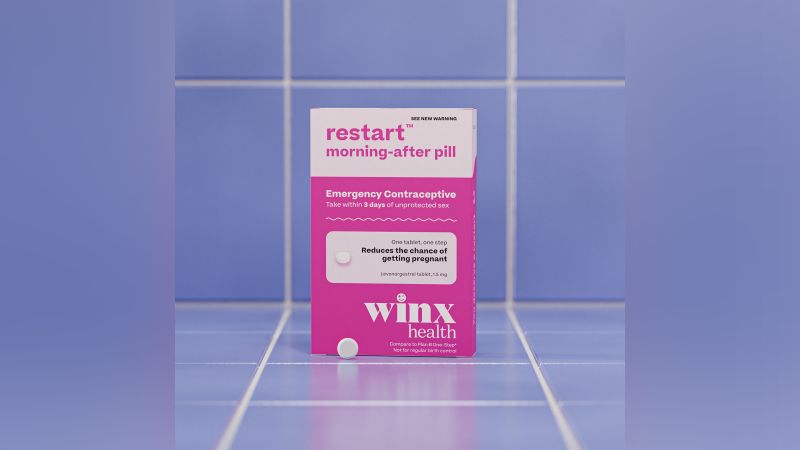In the wake of significant political shifts in the United States, especially following Donald Trump’s victory in the presidential election, there has been a notable surge in online sales of emergency contraceptives, particularly the morning-after pill, known as Plan B. Retailers have reported that this sudden spike in demand, especially over a brief period following the election results, indicates a palpable concern among women regarding potential changes in access to emergency contraception under a potential Trump administration.
Monica Cepak, the CEO of Wisp, a telehealth company that focuses on sexual and reproductive health, noted that women are preemptively preparing for possible restrictions by purchasing emergency contraceptives. At Wisp, sales of their emergency contraception offerings increased by approximately 1,000% just one day post-election. This extraordinary growth exemplifies the urgency many women feel during this transitional period.
Furthermore, these sales figures reveal an emerging trend among women to stockpile emergency contraceptive pills. Wisp recently launched multipacks of Plan B, which became a significant driver for the sales increase, with around 90% of emergency contraception orders consisting of these larger quantities. This behavior underscores a broader sentiment of fear regarding future access to such medications.
Similarly, other companies have reported dramatic increases in sales. For example, Winx Health, which offers a morning-after pill branded as Restart, saw a 315% increase in sales the day after the election compared to the preceding 24 hours. This figure indicates that women are not merely purchasing emergency contraception, but rather buying significantly more doses than they might typically need, as expressed by Cynthia Plotch, co-founder of Winx Health.
This heightened demand has also influencedWinx Health’s community engagement, particularly through their Restart Donation Bank program, which enables individuals to request and receive Restart free of charge. Plotch emphasized the responsibility of women-led companies to advocate for reproductive health care access amid an unpredictable political climate.
The differences between emergency contraception, such as the morning-after pill, and abortion methods are crucial in understanding the discourse around reproductive rights. While emergency contraceptives prevent pregnancy after unprotected intercourse, abortion involves terminating an existing pregnancy. As states begin to implement stricter regulations on abortion, concerns about the availability of emergency contraceptives similarly rise, pointing to a troubling pattern where decreased access in one area further complicates the entire reproductive health spectrum.
Healthcare providers have reported an uptick in patients seeking information and options for long-term contraceptive methods like intrauterine devices (IUDs). Many patients have expressed urgency in securing these options before changes in policies under a new administration take effect. Dr. Clayton Alfonso, an obstetrician-gynecologist, recounted specific cases where patients requested IUDs or permanent sterilizations, emphasizing a sense of immediacy driven by fears of losing access.
The fears surrounding reproductive healthcare are further exacerbated by outlines from conservative organizations like the Heritage Foundation, which propose limiting access to abortion and other reproductive health services under a potential second Trump presidency. Experts worry that a regression in reproductive rights could not only affect abortion access but could also threaten maternal health and contraceptive services. Amy Friedrich-Karnik, from the Guttmacher Institute, asserted the interconnectedness of various aspects of reproductive healthcare.
The potential for misinformation and the possibility of utilizing outdated laws, such as the Comstock Act, to impose restrictions on contraceptives and telehealth services poses a significant threat to reproductive health rights. Friedrich-Karnik highlighted the cascading effects when any single component of reproductive care is targeted, reinforcing that individuals reliant on one area of care are often reliant on many forms of reproductive health services.
As the political landscape continues to evolve, the actions and purchasing behaviors of women reflect a proactive stance toward safeguarding their reproductive health and rights. The current climate demonstrates a community of women eager to reclaim agency over their health decisions, potentially shaping the future of reproductive health advocacy. This pivotal moment in American politics signals not only anxiety about access but also an opportunity for empowerment and solidarity among women fighting for their rights.












